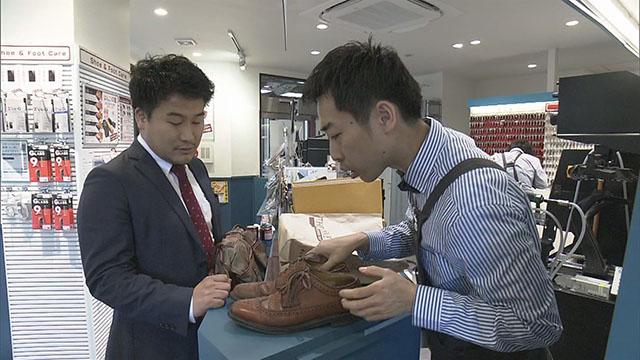Many people, especially those in younger generations, appear to prefer cheaper, second-hand goods to new ones. This shift in preference is believed to have led to smaller increases in consumer spending.
Ai Sakai is a 27 year-old company employee living in Tokyo. She says most of her belongings are second-hand items. Home appliances, furniture, clothes. She says she bought them at cheap prices through an app.
"I saw my sofa and table at a showroom and fell in love with them," she says. "So I bought them without hesitation when I spotted the very same set on the smartphone app."
Sakai is getting married in November. She says she bought shoes for the wedding through the app--three pairs, in fact, because they cost only about one-tenth of the catalog price. She is now looking for a wedding dress as well.
"I understand some people would prefer new items," she says, "but I definitely prefer cheap second-hand ones to new ones."
How common is it to buy second-hand goods?
An online survey conducted in March showed that 49 percent of respondents had little or no reluctance in using second-hand goods.
Data also shows the expansion of the used item market. The Reuse Business Journal, a magazine specializing in recycling businesses, estimates that consumers spent about 16 billion dollars on used goods in 2016. The figure, which excludes purchases of used cars and houses, increased by 40 percent over 5 years. The journal expects it will reach 17.7 billion in 2020.
Some experts say the frugality of young consumers may be driving the growth of the second-hand market. According to an annual government survey, the number of people in their 20s and 30s who choose to save money instead of spending it has been increasing over the years. It exceeded 50 percent in 2007, and reached nearly 60 percent last year.
Booming repair business
MISTER MINIT, which repairs shoes and bags, has more than 300 outlets nationwide. The number of orders it received was up by 300,000 in fiscal 2017. The increase is due to customers who bring items they purchased via flea-market apps and online auctions. Given the boost, the company expanded its repair plant and doubled its workforce to 80 over the past 3 years. One customer brought shoes he purchased through an app. He says 2 pairs cost about 45 dollars.
"I had the shoes resoled, and they look good," he says. "I am happy with used shoes because they are cheaper."
The firm believes demands for repair services will continue to grow.
"Some customers say they feel at ease buying used items thanks to companies like our own," says a senior company official, "as the second-hand market itself does not provide after-care services."
Weighing the downside
On the other hand, manufacturers and retailers suffer when new items don't sell well. The Cabinet Office says the growing preference for second-hand goods could push down the GDP.
Last month, a long-established department store launched a service in a bid to encourage customers to buy new items. The Mitsukoshi department store in Nagoya is offering to buy used watches, clothing and other items. The store has partnered with second hand dealers to determine the price on the spot.
"The service provides the department staff new opportunities to communicate with customers," a Mitsukoshi spokesperson says. "We hope the service will make customers aware of the value of the goods they own and arouse their interest in buying new items."
The company has set up counters at 5 stores so far.
Yoshiki Shinke is chief economist at Dai-ichi Life Research Institute.
"Most second-hand trading is not reflected in GDP figures, so if an increase in sales of second-hand goods at a firm leads to a decline in its sales of brand-new goods, that could lead to a dip in the GDP," he says. "But the increasing market for second-hand goods should not be considered a negative. It offers consumers more choices, giving both sellers and buyers greater satisfaction."
Shinke also points out that younger people want to keep their spending small because their wages are low. He says they are spending smartly by choosing second-hand items.
"The used goods market will definitely continue to grow in the future," he says. "It can also lead to new businesses, so it's important to adapt to the changes."
